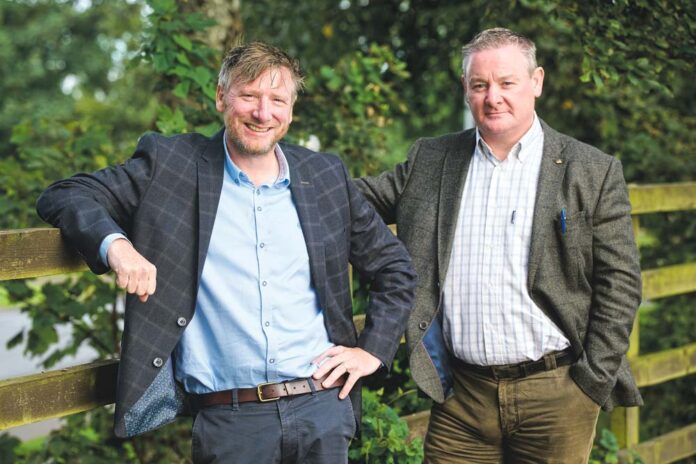How much debt is too much?
Inflation may be slowing but many of us are still feeling the pinch in real life as we head into Christmas, the busiest time of year for our bank cards.
The cost-of-living crisis along with rising rents and mortgage repayments means many households struggle to have anything left over at the end of month. Relying on credit “to get through” Christmas and all its expectations might seem more tempting than ever.
While using credit or having debt when it’s manageable isn’t necessarily a bad thing, it can spiral into a serious problem left unchecked. Situations can change. A redundancy or an illness might reduce income. Suddenly late notices and fees are piling up.
Interest is compounding. Then the scary letters and phone calls start. That’s when the world feels like it’s coming down on us and we’re stuck with no solution in sight.
Many people in Ireland are facing the problem of debt and struggling to pay their living expenses. Debt can cause stress, anxiety and legal issues if not dealt with properly. However, there are ways to cope with debt and get help from various sources. Most people in Ireland have some form of debt. Debt is something that we don’t like to talk about. It’s often spoken about in hushed tones, behind closed doors or perhaps only hinted at.
The truth is, unsustainable debt is a common problem in Ireland today. And one that is set to grow in over the next decade. Debt is a normal part of life. Most of us have a mortgage, perhaps a personal loan and maybe some credit card debt too. The problems arise when people get into difficulty with debt. That is unfortunately pretty common.
But the important thing to know is there are always options and different pathways available to make personable debt more manageable.
The Insolvency Service of Ireland (ISI) was founded in 2013 in response to the 2008 financial crisis. It’s an independent government body set up to help tackle personal debt problems.
Finding the right solution
The ISI is an independent government body, which acts as a neutral party between debtors and creditors. It is there to administer the solutions that will enable both parties to come to an agreed
solution. They provide the framework that enables those interactions to take place.
There are 4 main debt solutions:
1. Debt Relief Notice
If you have a low income, few assets and debts of less than €35,000 that you can’t repay, then a DRN could be the right solution for you.
A DRN can last for up to three years. You enter that DRN for three years. At the end of that period, your debt is written off. For a DRN you take the advice of an Approved Intermediary (AI). They will deal with the DRN and do all the work on that for you. The service is free and you qualify for it on certain conditions.
If you have a mortgage, a DRN is not the right choice for you.
2. Debt Settlement Arrangement
If you have unsecured debt such as credit cards, loans and overdrafts, a DSA could be the right choice for you. A DSA is a formal agreement with your creditors that will write off some of your debt.
A DSA is done via a Personal Insolvency Practitioner. The PIP will negotiate with your creditor, discuss with your creditor and agree what you can afford to repay over a specified period of time. The PIP’s fee is covered out of the money you can afford to repay. At the end of the DSA, the balance of the debt is written off.
3. Personal Insolvency Arrangement
A PIA is a formal agreement with all your creditors that will write off some of your unsecured debt and restructure any remaining secured debt.
It is a solution that helps people that have mortgage debt or secured debt. Under the Government Abhaile scheme, if you are in arrears on your home mortgage you can have a free consultation with a PIP to see if a PIA is the right solution for you.
4. Bankruptcy
Bankruptcy is a formal High Court procedure. You have to have debt over €20,000 but it can be any type of debt.
In bankruptcy your debt is written off. Typically bankruptcy will last for a year. At the end of that year, you’re able to regain a level of financial independence.
An excellent source of help is the Citizens Information, which provides information on your rights and entitlements regarding debt. They can explain the rules for collecting debts, the legal proceedings that can be initiated by creditors, and the protection from harassment and intimidation that you have under the law.
An additional source of help is to increase your income by finding ways to earn extra money or reduce your expenses. You can look for part-time or casual work, sell unwanted items, apply for grants or scholarships, or switch to cheaper providers for utilities and services. You can also seek advice from financial experts or counsellors who can help you to manage your money better.
Debt is a common problem in Ireland, but it is not insurmountable. By taking action and seeking help from reliable sources, you can overcome your debt and improve your financial situation. Many free services are available to you if you feel overwhelmed by personal debt – so act now.
The main takeaway from those struggling with debt is to start talking because hiding away will only make it worse.
Where to go for help managing debt:
Find out how you can handle your debt via the websites
www.backontrack.ie
www.mabs.ie or www.ccpc.ie
Carey Corbett Financial Services are experts for pensions, investments, mortgages, protection and financial planning.
Call Tommy or Donal @ 065-689 3540 or email info@careycorbett.com

